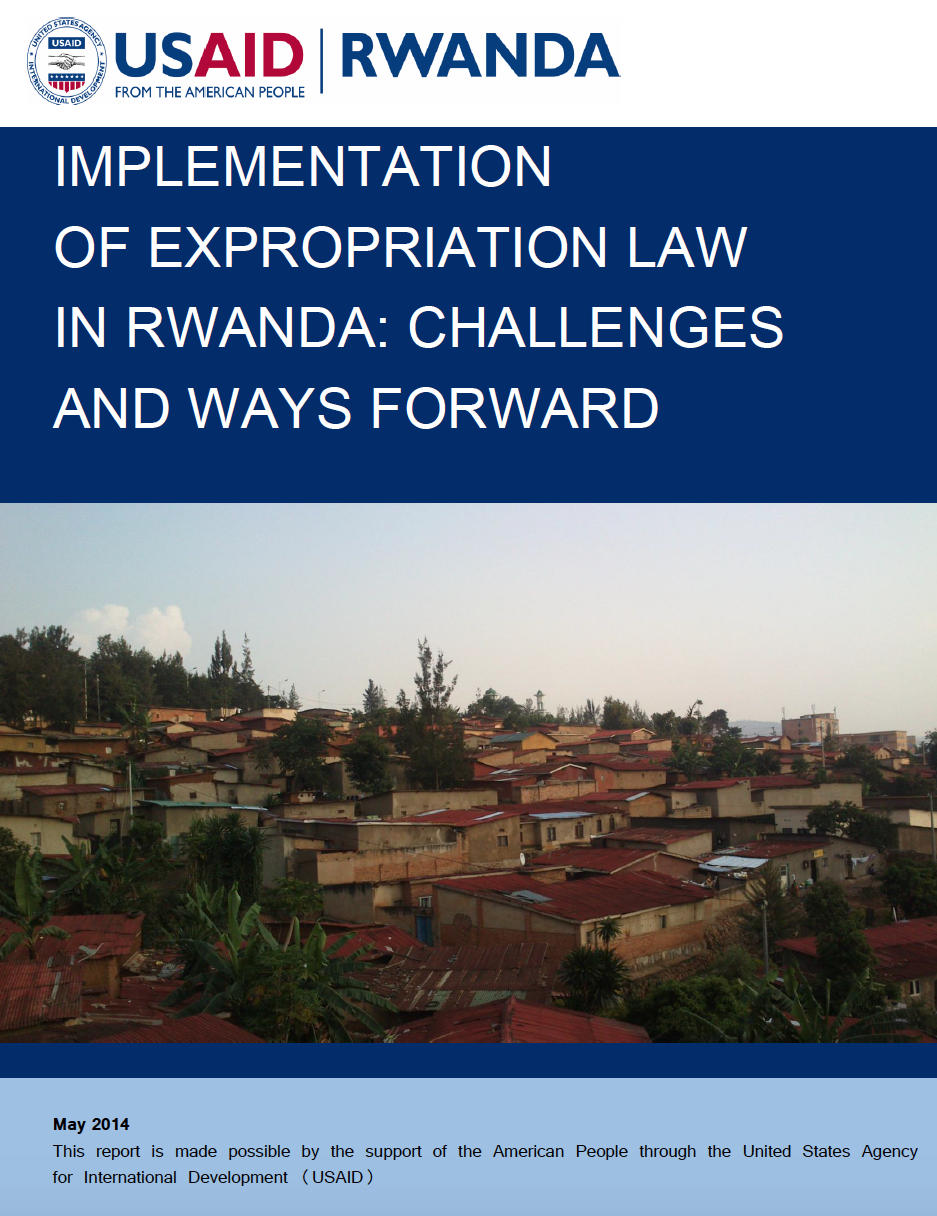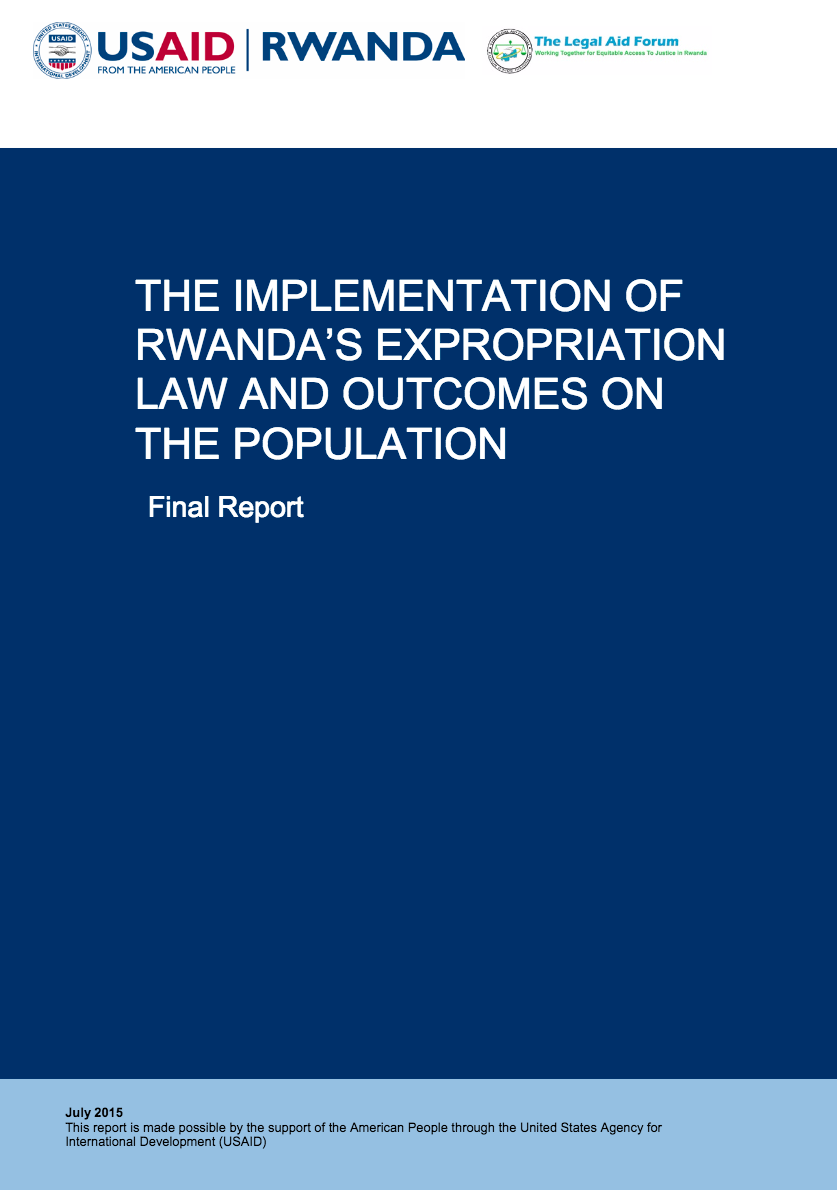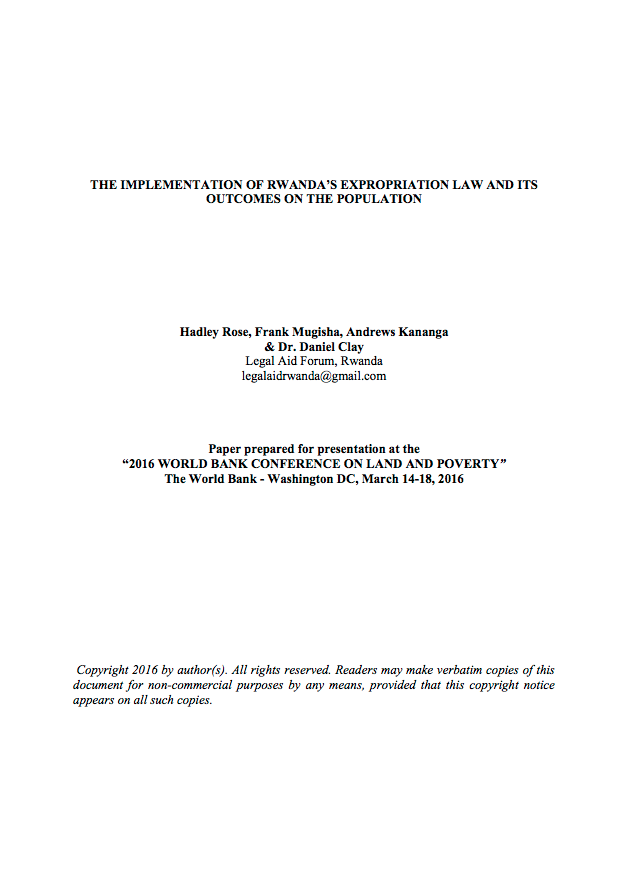LAND Project Policy Brief: Implementation of the Expropriation Law in Rwanda
This policy brief aims to inform policy and current practices governing land expropriation in Rwanda drawing on recent research carried out by the LAND Project. The brief elaborates on the legal framework and procedures guiding expropriation and on reported practice based on information gathered from primary and secondary sources. It then proposes measures that would potentially strengthen implementation of expropriation exercises countrywide.





